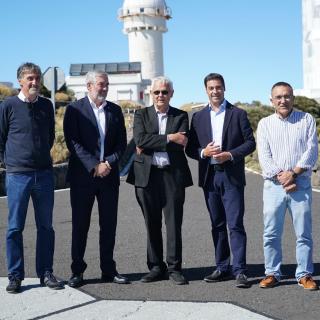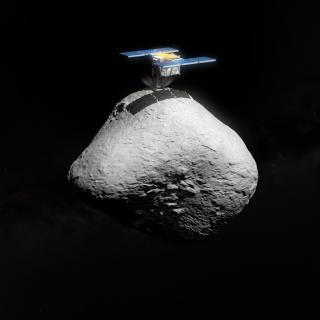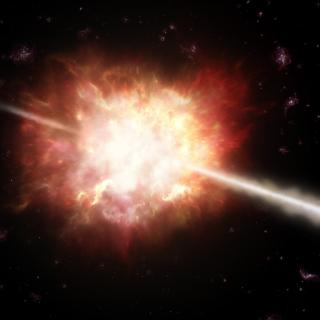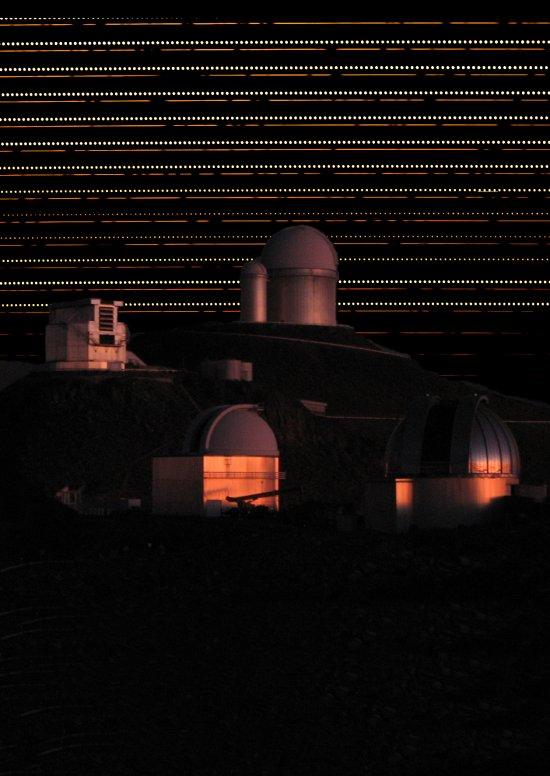It may interest you
-
 El Lehendakari del Gobierno Vasco, Imanol Pradales Gil, y el presidente del Gobierno de Canarias, Fernando Clavijo Batle, han visitado las instalaciones del Observatorio del Teide del Instituto de Astrofísica de Canarias (IAC) donde han sido recibidos por el director del centro, Valentín Martínez Pillet que ha estado acompañado por personal científico y técnico. Esta visita subraya el interés y la apuesta compartida por ambos gobiernos por la excelencia científica y la colaboración en proyectos de alta tecnología como los que abandera el IAC desde Canarias. Con dos de los observatorios másAdvertised on
El Lehendakari del Gobierno Vasco, Imanol Pradales Gil, y el presidente del Gobierno de Canarias, Fernando Clavijo Batle, han visitado las instalaciones del Observatorio del Teide del Instituto de Astrofísica de Canarias (IAC) donde han sido recibidos por el director del centro, Valentín Martínez Pillet que ha estado acompañado por personal científico y técnico. Esta visita subraya el interés y la apuesta compartida por ambos gobiernos por la excelencia científica y la colaboración en proyectos de alta tecnología como los que abandera el IAC desde Canarias. Con dos de los observatorios másAdvertised on -
 Astronomers have used telescopes around the world, includingthe Gran Telescopio Canarias (GTC or Grantecan) at the Roque de los Muchachos Observatory on La Palma, to study the asteroid 1998 KY26, revealing it to be almost three times smaller and spinning much faster than previously thought. The asteroid is the 2031 target for Japan’s Hayabusa2 extended mission. The new observations offer key information for the mission’s operations at the asteroid. “We found that the reality of the object is completely different from what it was previously described as,” says astronomer Toni Santana-Ros, aAdvertised on
Astronomers have used telescopes around the world, includingthe Gran Telescopio Canarias (GTC or Grantecan) at the Roque de los Muchachos Observatory on La Palma, to study the asteroid 1998 KY26, revealing it to be almost three times smaller and spinning much faster than previously thought. The asteroid is the 2031 target for Japan’s Hayabusa2 extended mission. The new observations offer key information for the mission’s operations at the asteroid. “We found that the reality of the object is completely different from what it was previously described as,” says astronomer Toni Santana-Ros, aAdvertised on -
 The international CTAO LST Collaboration , in which the Instituto de Astrofísica de Canarias (IAC) plays a prominent role, released remarkable findings from observations of GRB 221009A—the brightest gamma-ray burst (GRB) ever recorded. The results were published by the renowned journal The Astrophysical Journal Letters (ApJ Letters) . The publication presents in-depth observations conducted in 2022 with the Large-Sized Telescope (LST ) prototype, the LST-1, during its commissioning phase at the Roque de los Muchachos Observatory (ORM) on the CTAO-North site in La Palma, Spain. TheAdvertised on
The international CTAO LST Collaboration , in which the Instituto de Astrofísica de Canarias (IAC) plays a prominent role, released remarkable findings from observations of GRB 221009A—the brightest gamma-ray burst (GRB) ever recorded. The results were published by the renowned journal The Astrophysical Journal Letters (ApJ Letters) . The publication presents in-depth observations conducted in 2022 with the Large-Sized Telescope (LST ) prototype, the LST-1, during its commissioning phase at the Roque de los Muchachos Observatory (ORM) on the CTAO-North site in La Palma, Spain. TheAdvertised on
